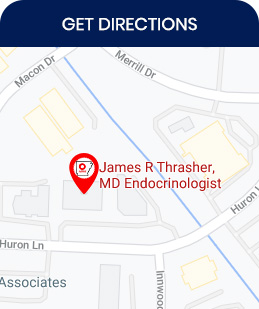Diabetes Treatment Specialist Q&A
Diabetes is a chronic condition that affects how your body turns food into energy. It occurs when your body either doesn’t produce enough insulin or can’t effectively use the insulin it produces. Our experienced, dedicated team specializes in endocrinology and diabetes at Arkansas Diabetes and Endocrinology Center in Little Rock, AR. For more information, contact our office to schedule an appointment. We are conveniently located at 11400 Huron Lane, Little Rock, AR 72211.
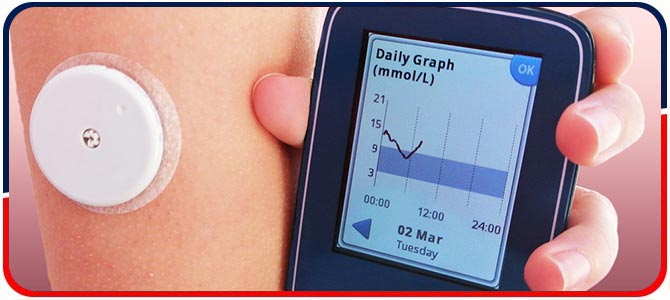
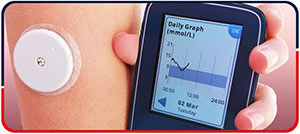
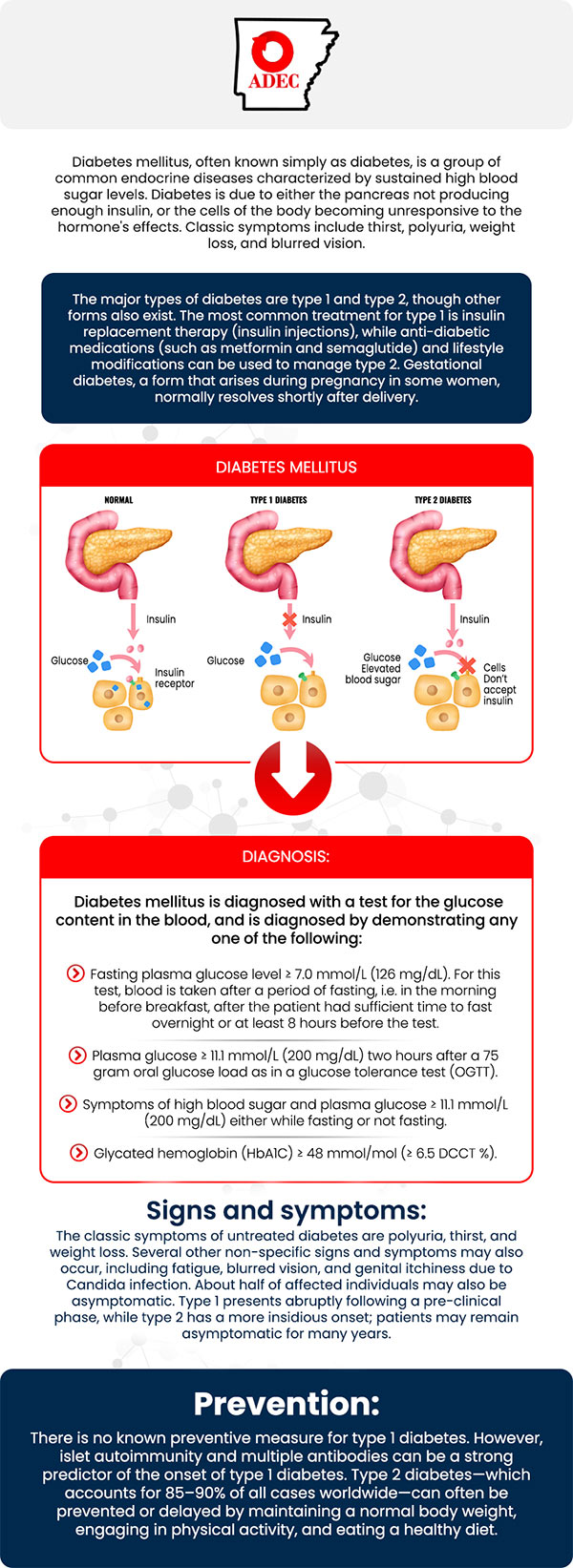
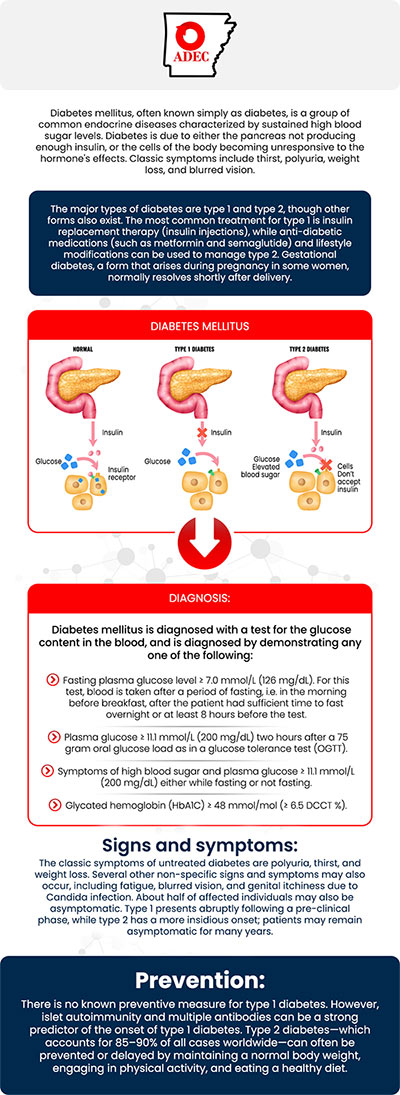
Table of Contents:
What you need to know
How is diabetes treated?
– People with type 1 diabetes have an immune system that mistakenly attacks and destroys the cells in the body that produce the hormone needed for controlling glucose called insulin. Type 1 diabetes occurs the most in children under the age of 5. This autoimmune disease is rising worldwide.
– Type 2 diabetes is the most common type of diabetes and is caused by your body not being able to properly use insulin or the inability to make enough. A primary risk factor of type 2 diabetes is being overweight. Your cells can become more resistant to insulin, the more fatty tissue you have. However, being overweight is not the only way to develop type 2 diabetes. If you are the type of person who’s body stores fat primarily in your abdomen you are at a higher risk od type 2 diabetes over someone who stores fat somewhere such as your hips or your thighs. The more active you are, the lower your risk is of type 2 diabetes. Physical activity is a great way to control your weight and it uses glucose as energy which can help make your cells more sensitive to insulin.
– Gestational diabetes mellitus is not caused by a lack of insulin. It is caused by other hormones produced during pregnancy by the placenta that can make insulin less effective and prevents the body from using the insulin effectively. These symptoms disappear after delivery.
– Monogenic diabetes, genetic forms of diabetes also exist (such as MODY Maturity Onset Diabetes of the Young and NDM Neonatal Diabetes Mellitus). Diagnosing the type of diabetes is important for appropriate medical treatment.
– People under age 45 who have a body mass index (BMI) greater than or equal to 25 kg/m2 and have several risk factors should consider testing for prediabetes or diabetes.
– People over age 45 should be tested for prediabetes or diabetes. They should be retested every three years if they receive a normal blood glucose test.
Diabetes is diagnosed in people if their blood glucose levels are:
– 126 mg/dl or higher after fasting for 8 hours (levels 100-125 mg/dl suggest prediabetes)
– 200 mg/dl or higher at any time of the day, when the patient feels symptoms of high blood glucose such as frequent urination, excessive thirst or blurred vision (levels between 140-199 mg/dl suggest prediabetes).
– 200 mg/dl or higher two hours after consuming a 75 gram glucose drink (levels between 140-199 mg/dl suggest prediabetes).
– A hemoglobin A1c level 6.5% or higher (levels 5.7-6.4% suggest prediabetes).
People diagnosed with type 1 diabetes are required to take insulin. Patients with type 2 diabetes are able to use a combination of injectable medicines, weight reduction, changing their diet along with pills, or insulin. Contact our office to schedule an appointment. We serve patients from Little Rock AR, Conway AR, North Little Rock AR, Pine Bluff AR, Hot Springs AR, Benton AR, Sherwood AR, Russellville AR, Jacksonville AR, Cabot AR, Searcy AR, Bryant AR, Jonesboro AR, Forrest City AR, Magnolia AR, Camden AR, Malvern AR, Batesville AR, Arkadelphia AR, Clarksville AR, Monticello AR, Heber Springs AR, Morrilton AR, Stuttgart AR, Greenbrier AR, Sheridan AR and Vilonia AR.


